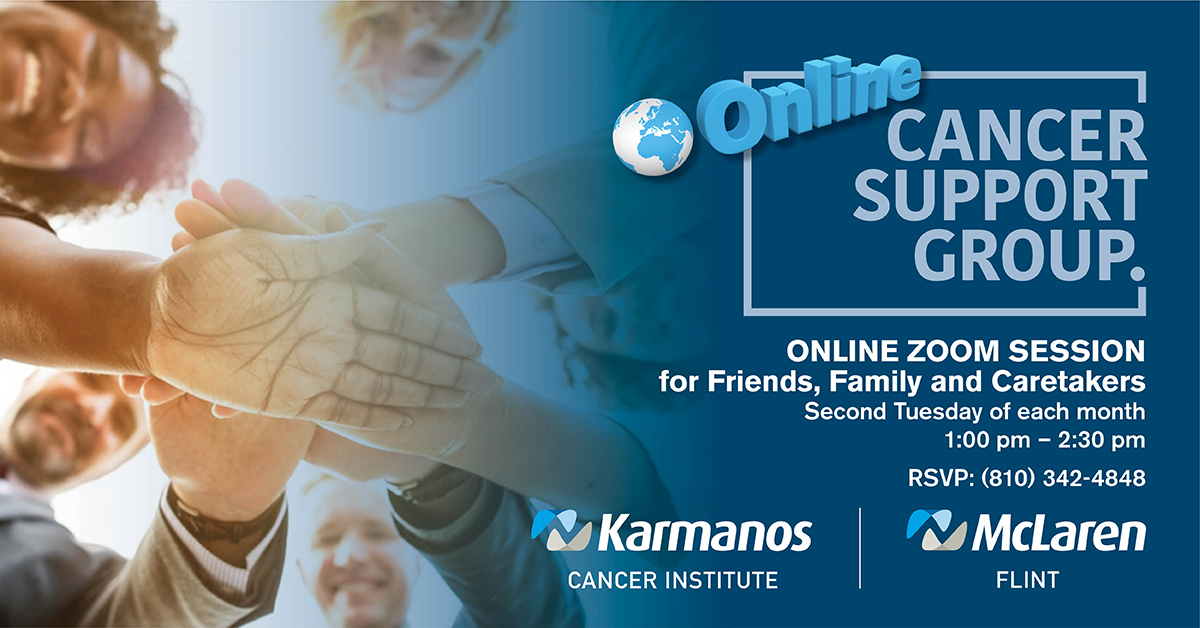Gratitude is usually something we think about during the Thanksgiving holiday season, but we may sometimes forget to practice gratitude daily.
“Gratitude is the active practice of appreciation of positive regard for self in life, for those around you, achievements, successes and more,” defined Samarea Lenore, PhD, Clinical Health Psychology Fellow at McLaren Flint, who also sees patients at Karmanos Cancer Institute at McLaren Flint.
Studies and research show that gratitude can lead to positive effects in many areas of life, including stress reduction, sleep, energy and mental health.
“If you’re actively practicing gratitude – focusing on what you appreciate, or the little and big things that worked well during your day – you could build resilience,” said Dr. Lenore. “Resilience is the ability to overcome difficulties with as minimal consequences as possible. If there are consequences, resilience can be the ability to sustain a sense of power, achievement and optimism despite the challenge.”
The active practice of gratitude can also help patients who have been diagnosed with a chronic illness develop resilience.
“When we get bad news, our brain naturally wants to examine and look for a solution. But when the negative revelation is out of your control, like a cancer diagnosis, there isn’t anything concrete to grab ahold for you to fix the situation yourself. This then allows for anxieties to take over your life. Studies and research show that practicing gratitude can help in taking control of anxious thoughts, and in turn, allows for your mind and body to feel less stress, which is very important in the healing process.”
The act of gratitude can produce happy hormones in the body, and according to Healthline, the happy hormones travel through your bloodstream and help regulate your mood. The opposite is also true for the experience of stress. According to the Hormone Health Network, if your body produces high levels of stress hormones, it can lead to serious health problems.
“Stress hormones can add health consequences to patients who are already working to treat a chronic illness, like cancer,” explained Dr. Lenore. “It can also stimulate depression, excessive feelings of grief and remorse. All of this can have negative consequences to your physical and mental self. But when you focus on things that you feel you appreciate and you're thankful for, it relieves all of that. Your body has more ability to use your natural resources and energy to focus on healing instead of being preoccupied with anxieties and stressors that are out of your control.”
Dr. Lenore says you can shift your thoughts by recognizing simple things that went well in your day. For example, though you may be tired from treatments, you made it into the shower today. Here are some additional ways in which Dr. Lenore says can help you practice gratitude:
- Journal or Reflect – It is normal for someone going through treatment to be exhausted. One activity that requires little energy is journaling about what you are thankful for each day.
“If journaling is not something you want to do, you can choose to reflect about your daily achievements in thought,” said Dr. Lenore. “Before you know it, you’re branching off into other memories of gratitude.”
While journaling or reflecting, you can also think about those who have helped you achieve those goals during the day. This stirs the positive emotion that defines gratitude.
- Practice Mindfulness – There are many techniques and ways to practice mindfulness. When practicing mindfulness, reflect on what’s going on in the present, which can help lead to gratitude, as well as finding acceptance. Prayer is an act of mindful practice as well as meditation. Meditate on an experience that brings gratitude and sit with that feeling.
- Find Acceptance – Accepting a cancer diagnosis or news about the progress of your treatment can take some time. Dr. Lenore encourages working on accepting the reality, but also practicing gratitude by replacing “but” in your statements with “and.” One of her examples is:
“This is my limitation. I’m always tired. This is my painful reality, AND I got to see my grandkids today on a video call. AND I got to hear my granddaughter tell the story of her day. AND my spouse brought me my tea and that was kind.”
It can be hard to train your brain to think of positives when you may feel like only negative events are happening in your life. Dr. Lenore says do not ignore the pain. It is okay to acknowledge the “what ifs” and “if onlys” that your mind may be thinking about but try to conclude your thoughts with something you have gratitude for.
“You can’t have control over the illness, but you can have control over the direction your mind wants to take it. Practice being the master of your mind so it doesn’t run away with you taking you into despair,” concluded Dr. Lenore.
For cancer patients who would like someone to talk with, behavioral health specialists are available at McLaren Flint. Dr. Lenore is also available at the hospital, the Karmanos Cancer Institute at McLaren Flint and the McLaren Proton Therapy Center. To schedule an appointment with Dr. Lenore, contact Hannah Ardelean, BSN, RN, OCN, oncology nurse navigator at (810) 342-4848.
Topics like gratitude, resilience and more are discussed during the Online Cancer Support Group. Join other cancer patients, friends, family and caregivers every second Tuesday at 1 p.m. Call Oncology Nurse Navigator Hannah Ardelean, BSN, RN, OCN at (810) 342-4848 to sign up for the next session. For more cancer support group online sessions, like music and art therapy, visit mclaren.org/flintcancersupport.

Cancer Support Groups in Flint